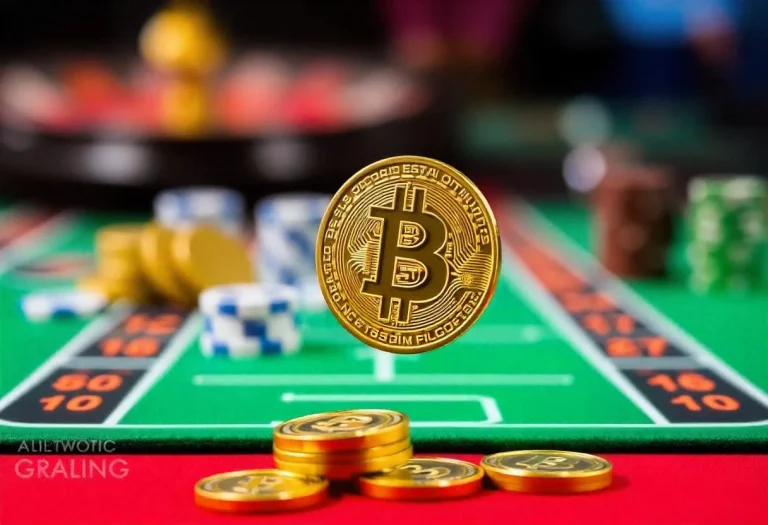There’s something uniquely exciting about playing the lottery. Unlike games that require complex strategies or high-stakes decisions, the lottery is simple: buy a ticket, pick a set of numbers, and wait to see if fate smiles upon you. It’s this very simplicity that has made the lottery a cornerstone of global culture, sparking conversations, fueling dreams, and creating shared experiences that transcend all walks of life.
It wasn’t just about the ticket itself—it was the anticipation, the wonder of what could happen if those numbers came up in your favor. This hope is universal, cutting across different economic backgrounds and uniting people with a single desire: to turn a small investment into something life-changing.
The magic of isn’t just in the potential winnings. It lies in the entire process—from the act of selecting your numbers based on personal superstitions to the thrilling moment when the draw takes place. For many, playing the lottery is a communal experience, one that brings people together in shared excitement as they wait for that one moment that could transform their fortunes.
It’s also the stories—the ones of unexpected jackpots, near misses, and the near-mythical tales of how ordinary people’s lives are changed overnight. Whether it’s checking your numbers with friends or fantasizing about what you’d do with the winnings, playing the lottery taps into a universal human desire for possibility. It’s more than just a game of chance; it’s a dream, a hope, and a shared experience that has captivated millions around the world.
Today, let’s take a closer look at the lottery—the good, the bad, and the not-so-ugly—and explore whether it’s something you should take part in.
A Brief History
The roots of can be traced back to ancient civilizations, where games of chance were used for various purposes like decision-making or resource distribution. However, it wasn’t until the Renaissance period in Europe that lotteries began to take a more organized, government-sponsored form. Bruges, Belgium hosted the first known government-sponsored national lottery in 1466. This event marked a significant turning point, as lotteries evolved from informal pastimes to formal mechanisms used by governments to raise funds for public projects. The idea of lotteries quickly spread across Europe and eventually made its way to the American colonies.
In the early days of the United States, lotteries became an essential tool for financing public initiatives. Revenue generated from lottery ticket sales helped fund the founding of esteemed institutions such as Harvard and Yale universities. This historical context highlights the role lotteries have played in supporting the growth of communities and nations.
Over time, it evolved, especially with the advent of technology. Today, online platforms have made lotteries more accessible than ever, breaking down geographical barriers and allowing people from all corners of the globe to participate. Despite the changes in format, the fundamental appeal of the lottery remains the same: a chance to dream big with a relatively small investment.
The Psychology Behind Playing
The lure of is rooted in the human desire for a change in fortune. The idea of winning life-changing amounts of money for just a small wager is tantalizing, especially when the possibility of winning is open to anyone, regardless of background or status. This egalitarian aspect of the lottery makes it universally appealing.
Psychologically, the lottery appeals to our sense of hope and optimism. Buying a ticket represents a small, yet significant, act of faith—an investment in the possibility of a brighter future. Moreover, the unpredictable nature of the lottery offers intermittent reinforcement, keeping players hooked. Unlike predictable rewards like a paycheck, the lottery’s occasional and unpredictable nature triggers a dopamine response, creating excitement and anticipation every time a ticket is purchased.
Additionally, the “what if” factor is a key driver of lottery play. Imagining how life would change if you suddenly became a millionaire is a powerful motivator. This fantasy is further amplified by stories of real people whose lives have been completely transformed by a lucky win.
The social aspect of the lottery also plays a significant role in its popularity. Whether participating in a lottery pool with friends or discussing lucky numbers with colleagues, the lottery creates a sense of community. It’s a shared experience, and the excitement surrounding each draw fosters camaraderie and connection.
However, there’s also a downside to the psychology of the lottery. Many people are fully aware of the slim odds of winning, but the fear of missing out—combined with the possibility of a life-changing prize—often outweighs rational thought. This paradox, known as loss aversion, contributes to the lottery’s addictive nature.
The Economic Impact
The economic significance of the lottery is undeniable. Over the years, lottery revenues have been used to fund everything from infrastructure projects to education and social programs. In the modern world, the advent of online lotteries has allowed for wider participation, making these games more accessible to a global audience.
However, there are ethical concerns surrounding the economic impact of the lottery. Critics argue that lotteries disproportionately attract lower-income individuals, essentially acting as a regressive form of taxation. The allure of winning big can lead some people to spend money they can ill afford to lose, raising questions about the fairness and morality of such a system.
Furthermore, the marketing tactics employed by lottery organizations have drawn criticism. Advertisements often focus on the transformational potential of winning, which can overshadow the reality that the odds of winning are incredibly slim. Some argue that this type of marketing preys on the hopes and dreams of vulnerable individuals.
Another concern is the volatility of lottery revenues. Governments often rely on lottery income to fund public initiatives, but the unpredictable nature of lottery sales can make it an unreliable source of long-term funding. This reliance on lottery revenues for public funding could pose risks if ticket sales decline or if people become disillusioned with the odds.
The Social Impact of the System
The social impact extends far beyond the potential financial gain. It serves as a communal experience, a topic of conversation that brings people together. Whether it’s joking with friends about winning the jackpot or sharing hopes and dreams with coworkers, playing the lottery often becomes a social event, a shared hope for the future.
The excitement of the draw, the fantasies of what could be, and the collective dream of winning big add a layer of excitement to everyday life. It’s an affordable way for millions to partake in a shared cultural experience.
However, there are potential negative social consequences. For some individuals, the desire to win big can lead to compulsive gambling behaviors, which can result in financial hardship. The responsibility of lottery organizations to promote responsible gambling practices and protect vulnerable individuals is more important than ever.
On a more positive note, lottery winners often use their newfound wealth to support local communities. Some donate to charitable causes, invest in businesses, or fund public initiatives. This influx of funds can have a positive ripple effect, improving public spaces and supporting local economies.
Conclusion
With its rich history and psychological appeal, has become more than just a game of chance. It’s a global phenomenon that connects people from all walks of life, fueling dreams, creating excitement, and offering a shared experience like no other. While the lottery offers the tantalizing possibility of life-changing wealth, it also raises important ethical and social questions that deserve careful consideration.
Whether you play occasionally or regularly, the taps into a basic human desire for hope and possibility. But as with all forms of gambling, it’s important to approach the lottery with awareness, understanding the odds and playing responsibly. So, the next time you buy a ticket, you’ll know that it’s not just about the chance to win—it’s about participating in a game that has captivated humanity for centuries.



